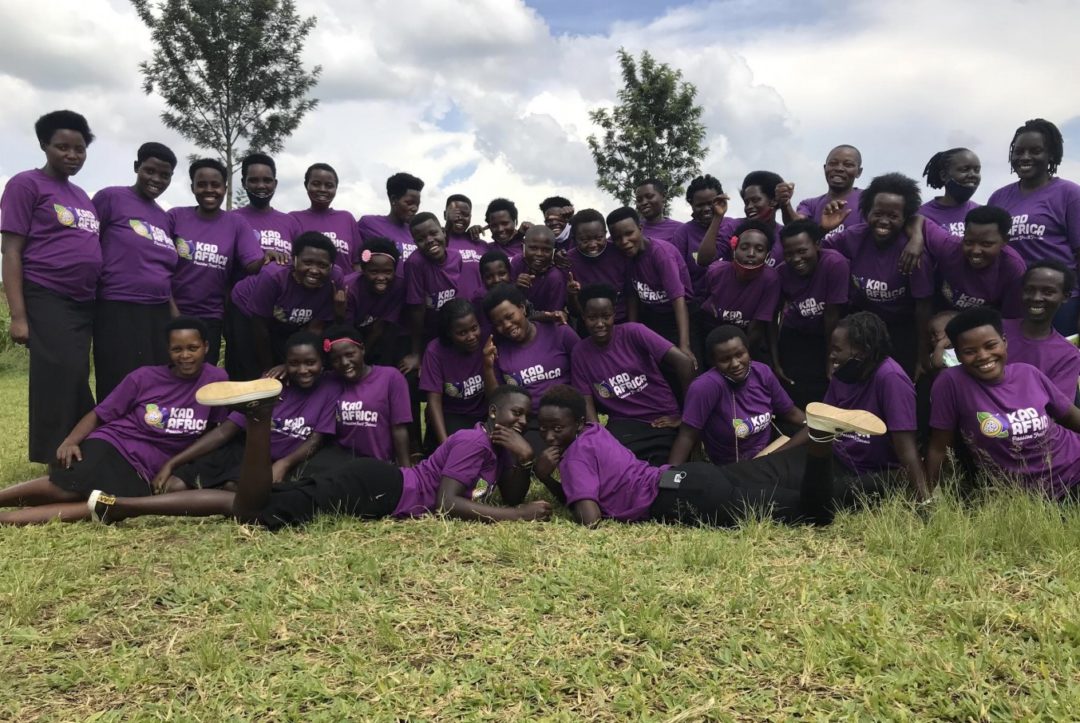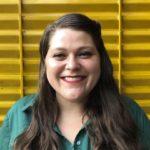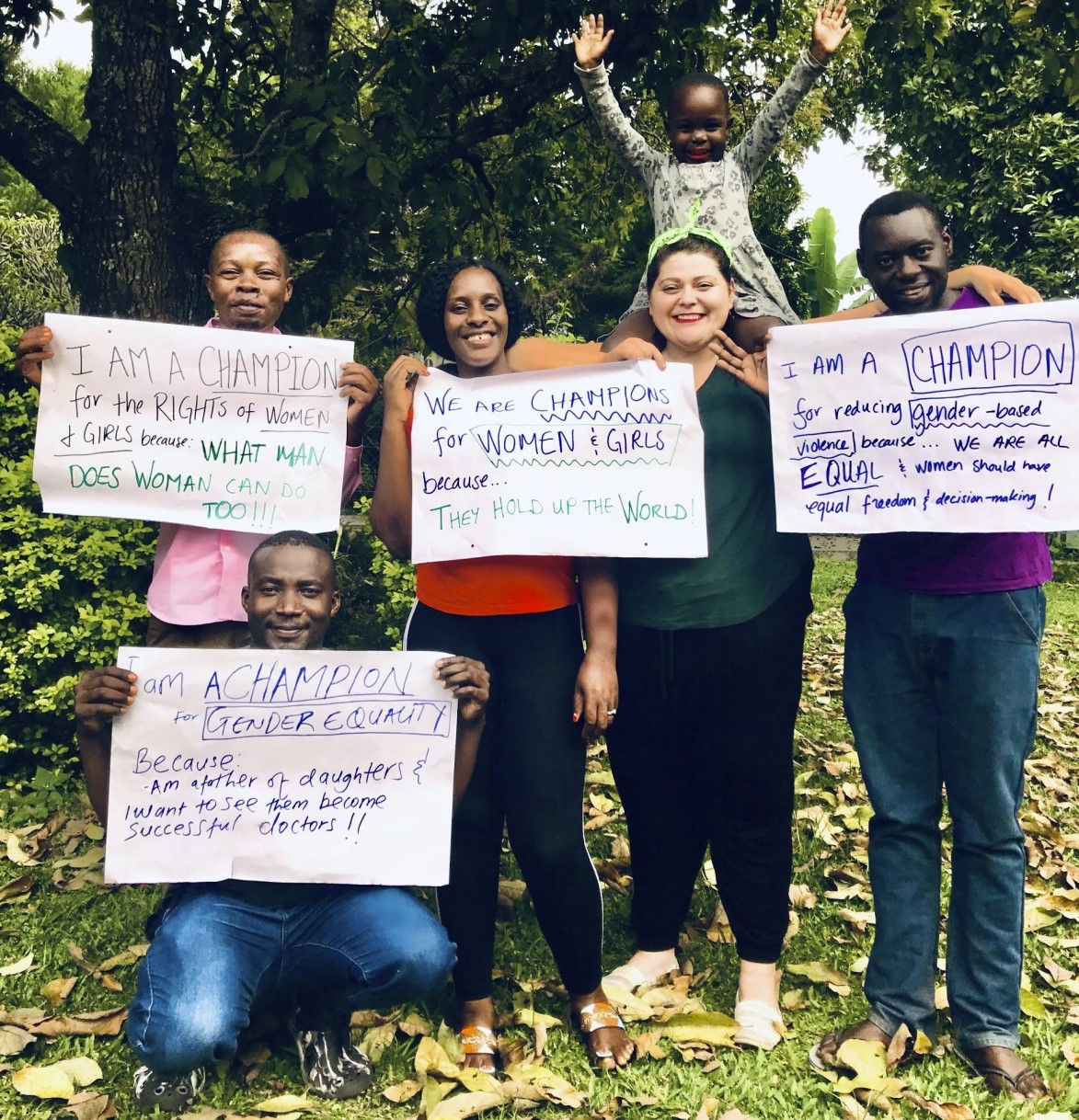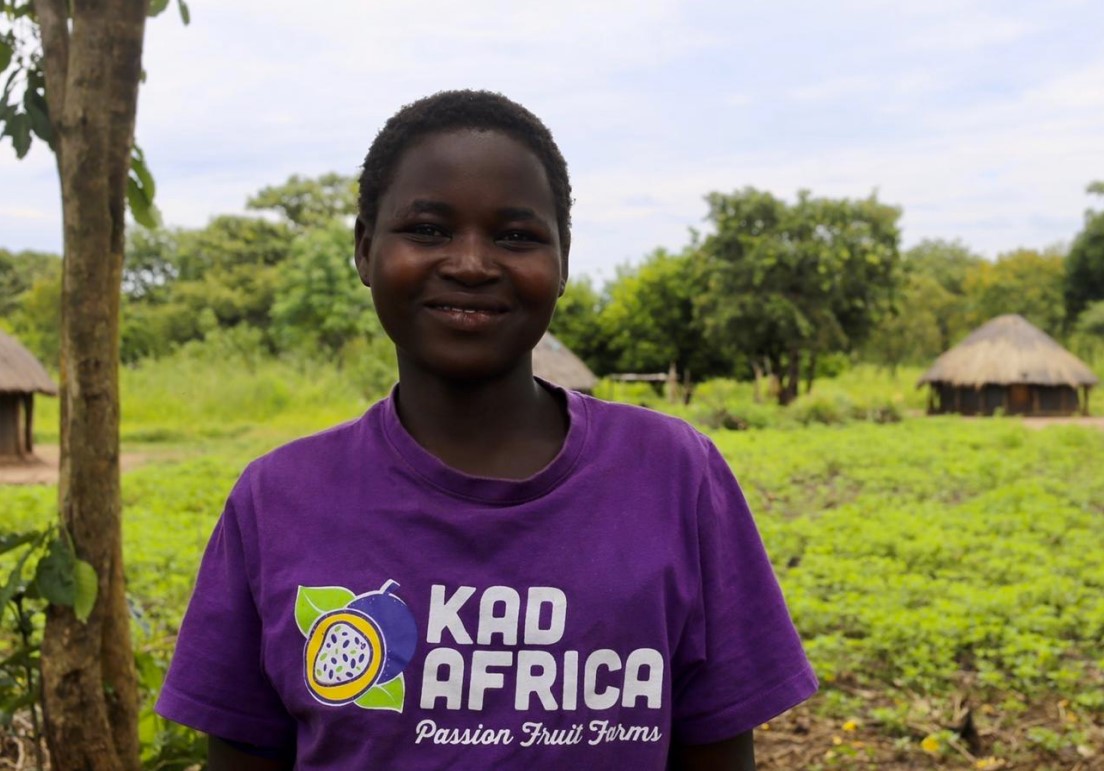Women and Girls to the Front: The KadAfrica Difference
Categorized as: Africa, Education, Girls & women, Grantee, Job Creation, Leadership, Our Partners, Poverty Alleviation, Stories on May 22, 2021.

At Sweswe Site, Kyaka II Refugee Settlement
Editor’s Note: The small, start-up social entrepreneurs that Skees Family Foundation is proud to support share several common traits. They are nimble, community-based, and are fiercely dedicated to the clients they serve. Read below how our Catalyst partner, KadAfrica, is working deep within their communities, listening to their clients, adapting how they serve them based on their needs, in order to bring about true systemic change. This is part one in a two part series.
 By Courtney Price, KadAfrica Director of Programs
By Courtney Price, KadAfrica Director of Programs
Small but Mighty
KadAfrica is arguably a very small fish in a very big pond. We’re a local organization that works for and with women and girls in rural communities and refugee settlements in Uganda. We work in contexts where large organizations operate with budgets in the tens of millions, but despite our small but mighty teams, our smaller than other organizations’ budgets, we deliver life-changing impact.
But that impact story isn’t always a neat and easy one to tell in donor frameworks. Small organizations don’t often have the evaluation budgets to follow up on the changes in a woman or girl’s life that may be seen years later. Systems change of entrenched social issues such as patriarchy, harmful gender norms about power and agency, and poverty doesn’t happen in the space of a 1-year grant or through one exciting new idea covered in a 1-hour talk on a world stage and get solved before the world’s attention moves on to the next exciting new idea.
Despite our efforts to remind the girls and women we work with that they’re safe, and that we will not discuss her private life with anyone, it is not easy for a woman or girl to answer questions freely and without shame, in our surveys about her sex life, the age which she first got married or had her first child. In Uganda, 25% of women have their first child before the age of 18, 34% are married before 18, and 7% are married by age 15 (UNFPA- UNICEF 2019).
Systems change takes time, it takes focus on zeroing in on the key area where an organization or initiative can make the most impact — and effective change takes creating spaces and opportunities to listen to the people facing that issue, putting their ideas into action, and their voices at the front of the issue.
These changes may be seen in a girl’s life, in the skills training, and most importantly, confidence-building from the KadAfrica Experience Program, that she had to start a business and be able to put her children through school years later if she decided to have them later than she would have earlier. Or in continuing to raise her voice in her community as an advocate against gender based violence and the right of a girl to continue going to school when she has been pregnant, to not marry early, to choose how many children she may want to have and if and when she wants to use family planning.
 KadAfrica Male Champion Program Training Team holding up our reasons for championing women and girls.
KadAfrica Male Champion Program Training Team holding up our reasons for championing women and girls.
Digging Deeper
I once had the privilege of listening to a talk given by a brilliant woman, Agnes Binagwaho, Rwanda’s former Minister of Health. She explained to a diverse room of health equity advocates that when you’re trying to change health equity for last-mile populations — you design to reach the most vulnerable amongst them —in designing for the last and hardest to reach, you reach everyone else along the road to them.
While we’ve always used the feedback from women and girls in our communities in our design, at certain points we had only the bandwidth to operate on the work that simply providing an opportunity for girls and women to earn money, that teaching entrepreneurship and agriculture skills, that teaching sexual and reproductive health and rights (SRHR) and menstrual health information, that facilitating access to women and girls having their own protected income, to savings and loans for the first time, was enough to leverage enough change.
While we continue to create economic pathways to resilience and independence, to provide sexual and reproductive health and menstrual health education, and to teach village savings and loans groups, we have learned so much in the last two years and do it so much deeper now.
 Betty Akello, age 16, Child Marriage, Education, and Girl Potential Advocate in Palabek Refugee Settlement
Betty Akello, age 16, Child Marriage, Education, and Girl Potential Advocate in Palabek Refugee Settlement
What we know now is that the depth of our work towards effective long-lasting health, economic, and social change is driven first and foremost by creating safe spaces for women and girls to share freely and confidently in a culture that reinforces that they have nothing to teach to men, that they should not speak too much or too loudly, that they’re not as capable as men to make business or health or family decisions, and that if they raise their voices confidently they are undermining men. By putting the voices of KadAfrica women and girls at every site, in every refugee settlement that we work in at the front of our design, and then by iterating and adapting, and co-building something new when we learn something new from them, specific to their obstacles, is the most effective driver of our impact.
All photos were provided from KadAfrica.
LEARN more about KadAfrica here.
SHARE this story with your networks; see menu at top and bottom of page.
DONATE directly to help support KadAfrica here.
SUBSCRIBE! Like what you see? Click here to subscribe to Seeds of Hope!
